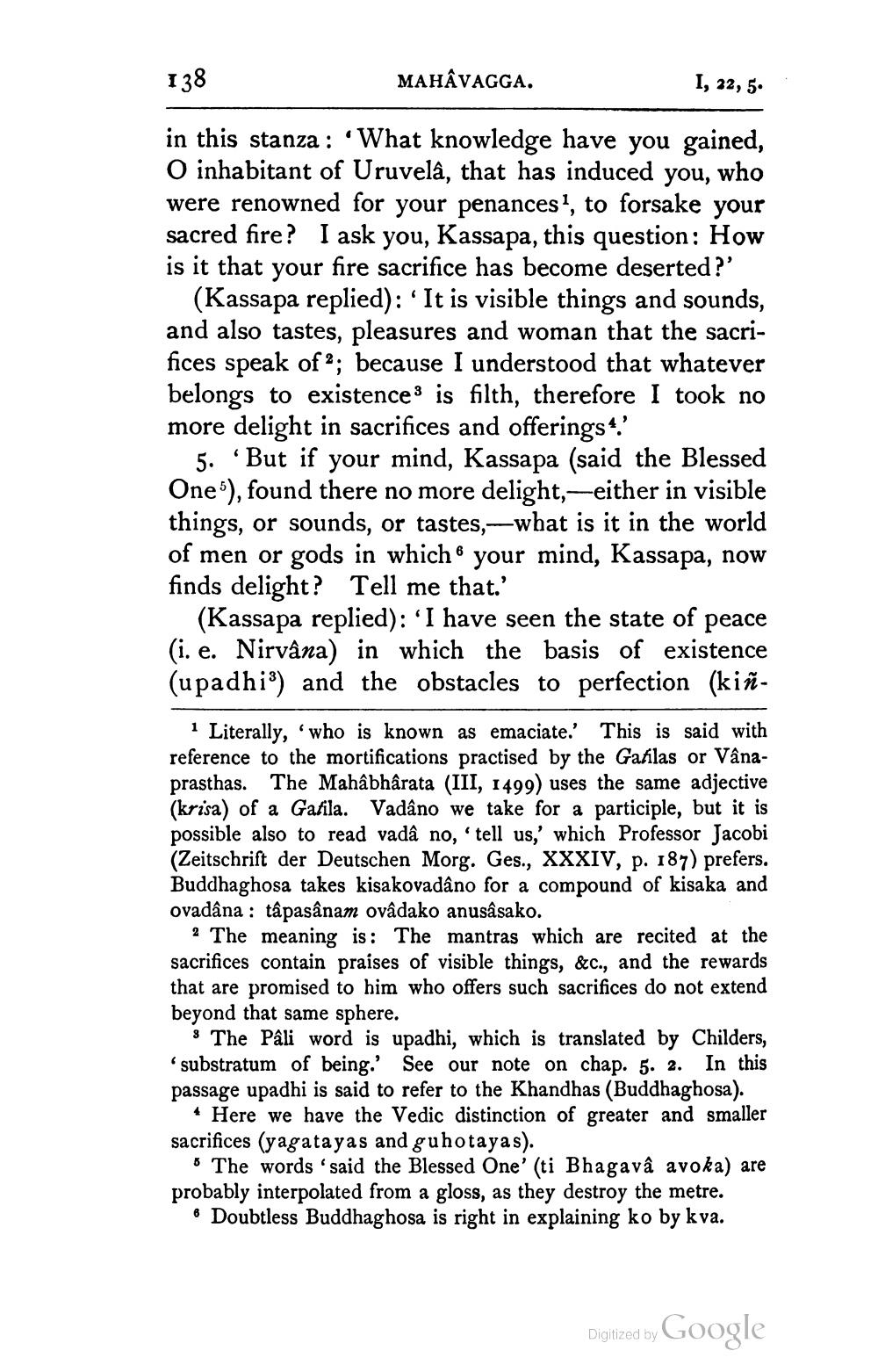________________
138
in this stanza: 'What knowledge have you gained, O inhabitant of Uruvelâ, that has induced you, who were renowned for your penances1, to forsake your sacred fire? I ask you, Kassapa, this question: How is it that your fire sacrifice has become deserted?'
(Kassapa replied): 'It is visible things and sounds, and also tastes, pleasures and woman that the sacrifices speak of 2; because I understood that whatever belongs to existence is filth, therefore I took no more delight in sacrifices and offerings.'
5. But if your mind, Kassapa (said the Blessed One), found there no more delight, either in visible things, or sounds, or tastes,-what is it in the world of men or gods in which your mind, Kassapa, now finds delight? Tell me that.'
(Kassapa replied): 'I have seen the state of peace (i. e. Nirvâna) in which the basis of existence (upadhi3) and the obstacles to perfection (kiñ
MAHAVAGGA.
I, 22, 5.
1 Literally, 'who is known as emaciate.' This is said with reference to the mortifications practised by the Gafilas or Vânaprasthas. The Mahâbhârata (III, 1499) uses the same adjective (krisa) of a Gafila. Vadâno we take for a participle, but it is possible also to read vadâ no, 'tell us,' which Professor Jacobi (Zeitschrift der Deutschen Morg. Ges., XXXIV, p. 187) prefers. Buddhaghosa takes kisakovadâno for a compound of kisaka and ovadâna: tâpasânam ovâdako anusâsako.
2 The meaning is: The mantras which are recited at the sacrifices contain praises of visible things, &c., and the rewards that are promised to him who offers such sacrifices do not extend beyond that same sphere.
3 The Pâli word is upadhi, which is translated by Childers, 'substratum of being.' See our note on chap. 5. 2. In this passage upadhi is said to refer to the Khandhas (Buddhaghosa). Here we have the Vedic distinction of greater and smaller sacrifices (yagatayas and guhotayas).
The words 'said the Blessed One' (ti Bhagavâ avoka) are probably interpolated from a gloss, as they destroy the metre.
• Doubtless Buddhaghosa is right in explaining ko by kva.
Digitized by
Google




